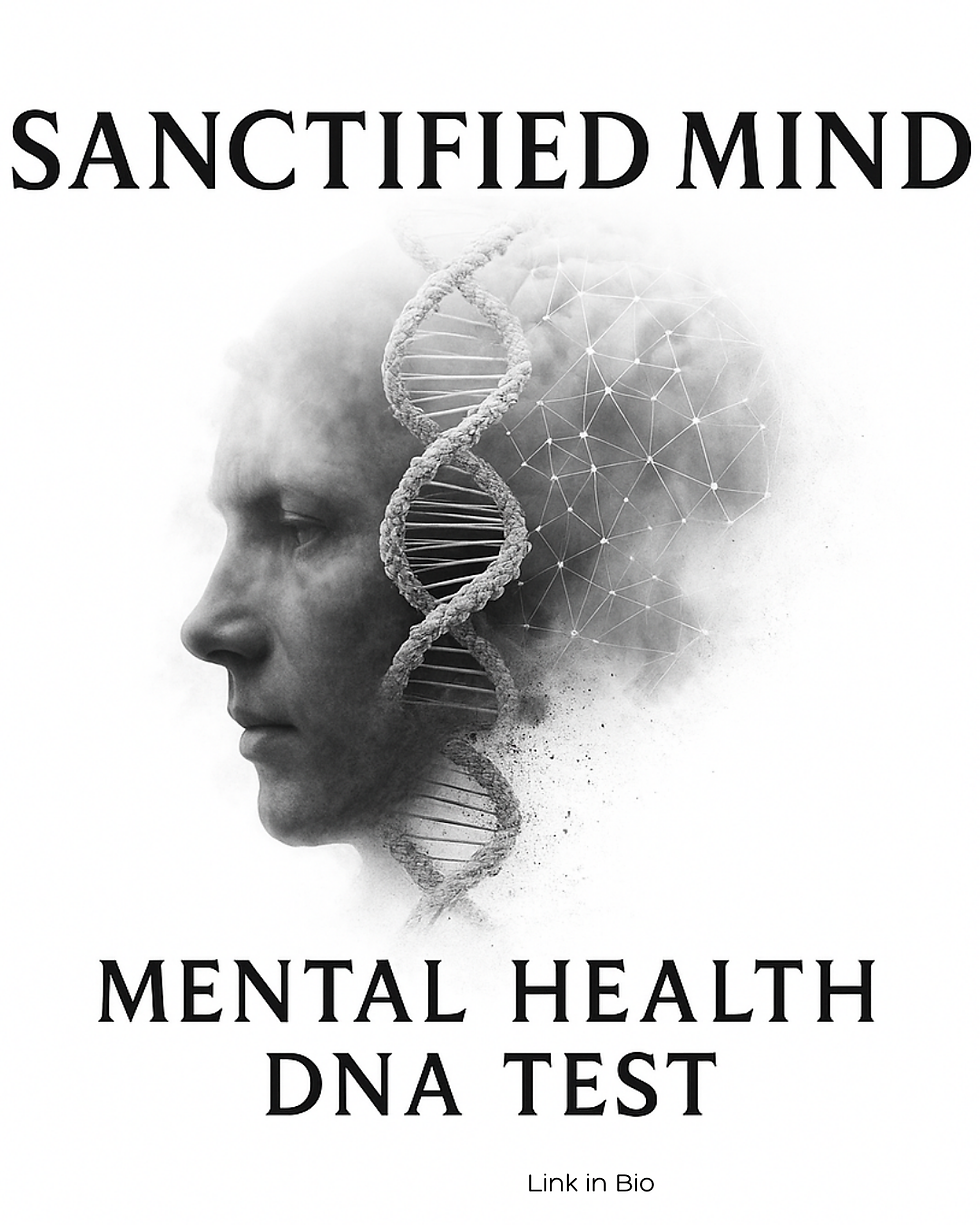Genes, Epigenetics, and Mental Health What the Latest Research Really Says
- Niki Porter

- Aug 23, 2025
- 3 min read
If you’ve heard that mental health is “in your genes,” you’re only getting half the story. Two new, widely cited papers help round out the picture: one explains how our environment talks to our genome, and the other shows just how polygenic common conditions like depression really are. Together, they say: your DNA matters—and so do your life experiences.
First, the Basics
Genetics = the DNA sequence you inherit. It sets baseline risk by encoding proteins that build and run your brain.Epigenetics = chemical “post-it notes” on DNA and its packaging (like DNA methylation and histone changes) that dial genes up or down without changing the letters of DNA. These marks are responsive to experiences—stress, sleep, nutrition, movement—and some can last a long time.
What the New Papers Add
1) Environment shapes risk via gene regulation
A comprehensive review on genome–environment (G×E) interactions in psychiatry shows how stress, trauma, and other exposures can leave epigenetic marks in pathways that regulate the stress response (e.g., HPA axis) and synaptic plasticity. These changes can help explain why people with similar genetic risk have different outcomes—and why prevention and support matter. Epigenetic marks are influential yet potentially reversible, making them compelling targets for lifestyle and therapeutic interventions.
2) Depression is highly polygenic—and more diverse datasets matter
A 2024 Cell study assembled one of the largest trans-ancestry genetic analyses of depression to date, reporting hundreds of genome-wide associations and highlighting brain cell types (amygdala/hippocampal excitatory neurons, medium spiny neurons) implicated by the signals. It also underscores an ongoing problem: most genetic datasets are still Euro-centric; including diverse ancestries improves biological insight and the path to equitable risk prediction and therapeutics.
How Epigenetics Fits into Mental Health Care
- Stress & adversity: Early-life adversity and chronic stress can imprint epigenetic changes on genes that manage the stress hormone system. This partly explains long-tail effects of trauma—and why trauma-informed care helps.- Lifestyle levers: Sleep, movement, and nutrition influence the same biochemical one-carbon pathways that donate methyl groups (the “ink” for DNA methylation). Nutrients like folate, B12, choline, betaine, and methionine support these pathways—one reason healthy routines can complement therapy and medication. (These are supportive, not cures.)- Medication & new targets: As genetics maps risk loci, and epigenetics maps gene-regulatory shifts, researchers can triangulate drug targets and stratify who might benefit. The 2024 depression GWAS even found enrichment for targets of existing neuro-active drugs—an encouraging sign for repurposing.
What This Means for Families and Clinicians
1) Risk ≠ destiny. Genes nudge; environments and habits steer. That’s why multi-modal care—therapy, community, sleep, exercise, nutrition, and meds when indicated—works best.2) Precision mental health is emerging. Polygenic scores are not diagnostic, but research is moving toward biologically informed subtypes and better treatment matching—especially as studies include more diverse participants.3) Early support pays off. Because some epigenetic marks are malleable, investing in supportive environments (and addressing trauma) can change trajectories.
Glossary
Polygenic risk: Many small DNA variants, each with tiny effects, that add up to shift vulnerability.DNA methylation / histone modification: Epigenetic marks that regulate how much of a gene gets read.G×E (gene–environment) interaction: When the impact of an exposure (e.g., stress) depends on genetic background—and vice versa.
Resources Cited
- “Genome–Environment Interactions and Psychiatric Disorders” (open-access review). https://pmc.ncbi.nlm.nih.gov/articles/PMC10136093/- “Trans-ancestry genome-wide study of depression identifies 697 associations…” Cell (2024). https://www.cell.com/cell/abstract/S0092-8674(24)01435-1- “Epigenetics in Neurological and Psychiatric Disorders” (overview). - “Epigenetic mechanisms linking early-life adversities and mental health” (2024 review).


Comments